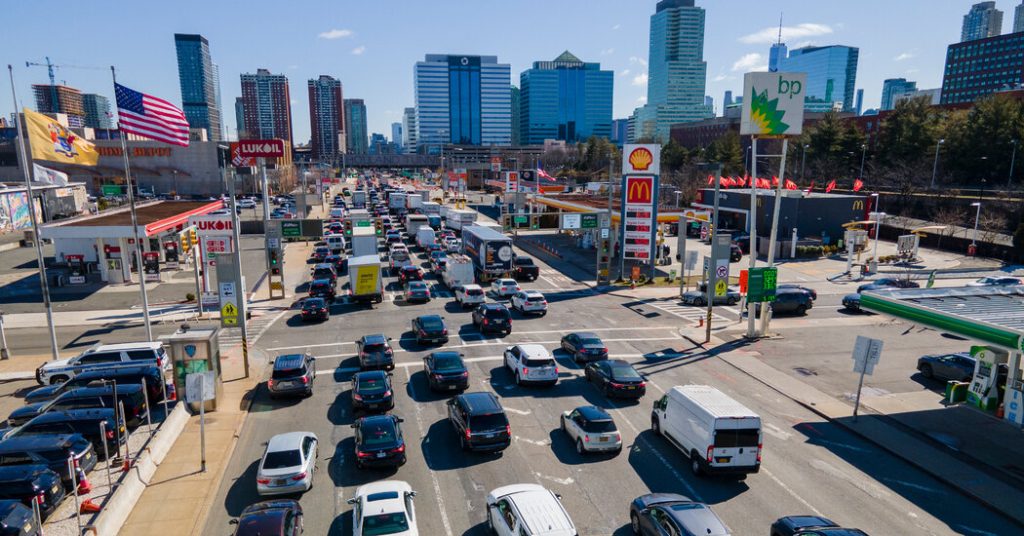The State of New Jersey is challenging New York City’s congestion pricing program in federal court, claiming that federal transportation officials did not fully address the environmental and financial impacts on New Jersey communities. They argue that more traffic and pollution could result as drivers avoid tolls, leading to potential harm to neighboring areas. The legal challenge is seen as a serious threat to the tolling program, which is set to begin in mid-June and aims to reduce traffic in Manhattan and raise funds for public transit improvements. State officials are pushing for a more comprehensive environmental study that could delay the program.
The congestion pricing program will charge most passenger cars $15 a day to enter Manhattan below 60th Street during peak hours, with higher tolls for commercial trucks. The Metropolitan Transportation Authority (M.T.A.) has approved the tolls following an environmental study that received over 25,000 public comments, the majority of which were in favor of the plan. M.T.A. officials believe their study was thorough and are willing to take mitigation steps if needed, even in neighboring New Jersey. The Federal Highway Administration is expected to review and approve the program as well.
Opposition to congestion pricing has been growing in the New York City region, with concerns about toll costs and potential environmental and public health impacts. The program was initially approved by New York State legislators in 2019, but has since faced multiple lawsuits in local federal courts. New Jersey Governor Philip D. Murphy, Mayor of Fort Lee Mark J. Sokolich, the United Federation of Teachers, the Rockland County executive Ed Day, and other groups have filed lawsuits against the program. Despite the legal challenges, the M.T.A. has suspended some capital construction projects that were slated to be funded by congestion pricing.
The outcome of the legal battle over congestion pricing could have significant implications for transportation and environmental policies in New York City. State officials are hoping for a more thorough environmental study of the program before it is implemented in order to address potential negative impacts on neighboring communities. The tolling program aims to reduce traffic congestion in Manhattan and raise funds for public transit improvements, but faces opposition from various groups concerned about toll costs and environmental consequences. The Federal Highway Administration is set to review and approve the program, but legal challenges could delay or possibly upend its implementation.


